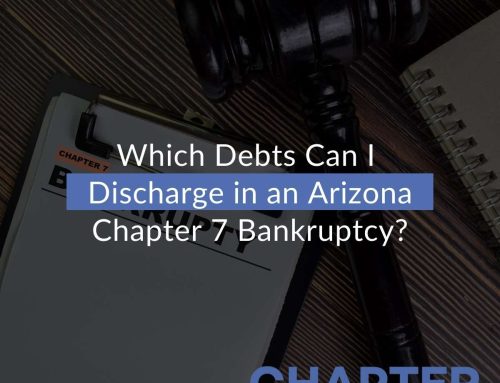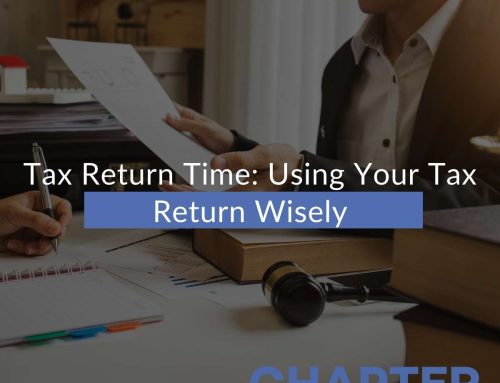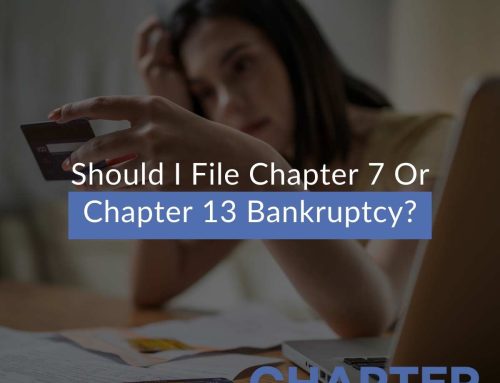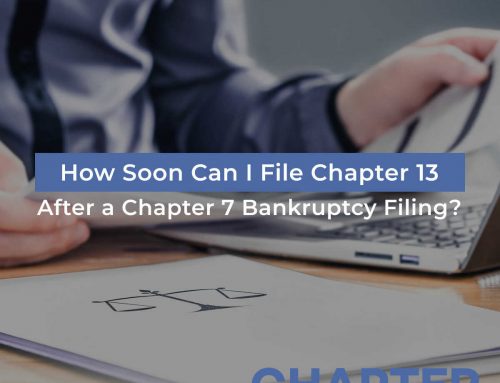Key Signs It’s Time To File Chapter 7 Bankruptcy & How Attorneys Can Guide You
Struggling to stay afloat financially can feel overwhelming, especially when bills keep piling up and there is no clear way out. For many, filing for bankruptcy becomes the only exit. But how do you know if it’s the right time for it? Understanding the benefits and timing of a Chapter 7 filing can make all the difference.
In this article we’ll explore the key signs that may indicate it’s time to act, what to consider before moving forward, and how Chapter 7 bankruptcy attorneys can help guide you through the process.
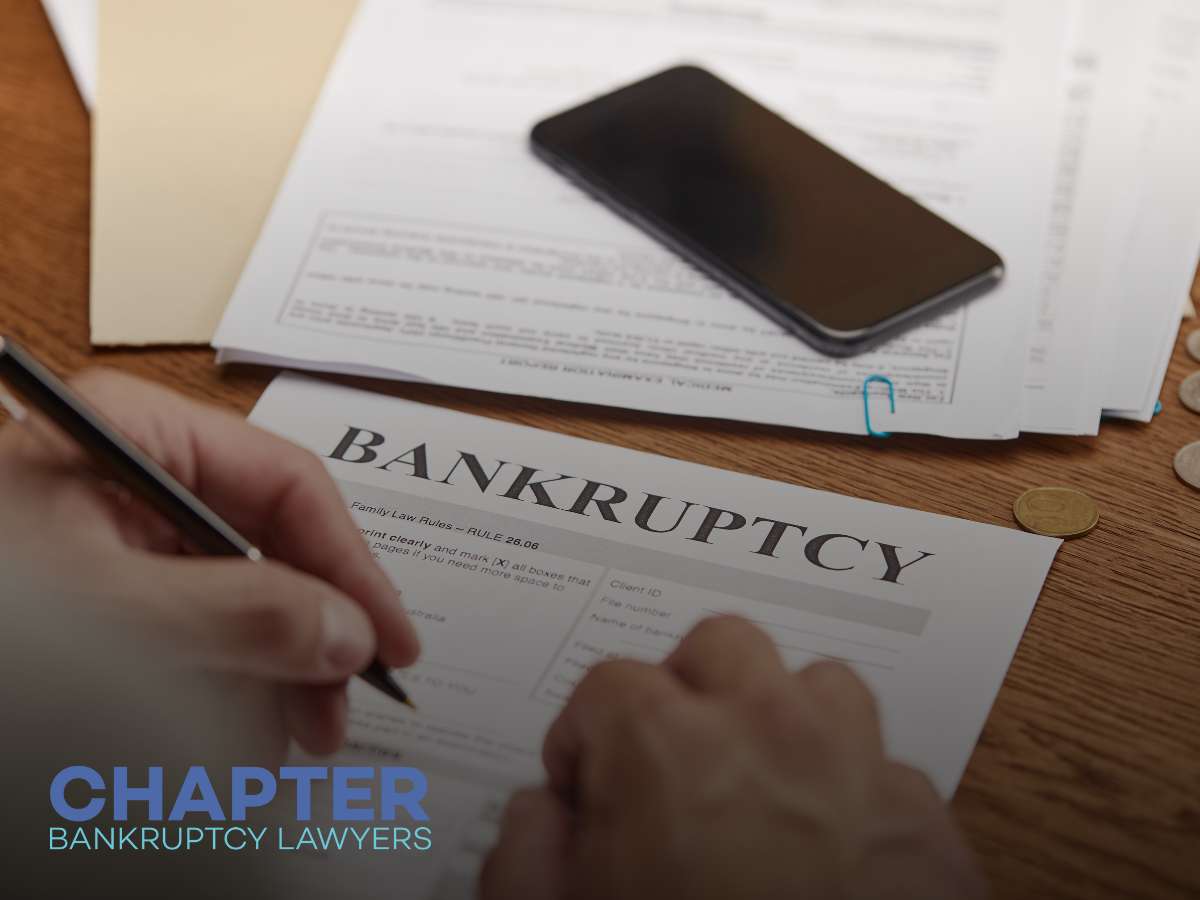
Understanding Chapter 7 Bankruptcy In Arizona
Chapter 7 bankruptcy is designed to help people eliminate overwhelming unsecured debts like credit card balances, medical bills, and personal loans. It’s known as “liquidation bankruptcy” because it allows a court-appointed trustee to sell non-exempt assets in order to repay creditors. However, most people who file keep all or most of their property thanks to exemption laws.
Once the process is complete (typically within three to six months), remaining eligible debts are discharged, meaning you can get a fresh start. It also stops collections, wage garnishments, and lawsuits through an automatic stay, offering relief from creditor pressure while the case is pending.
Chapter 7 bankruptcy focuses on liquidation, so it’s faster and completed within a few months compared to other types of bankruptcy like Chapter 13, in which you need to create a reorganization plan.
Key Indicators That It’s Time To File Chapter 7 Bankruptcy
It’s difficult to decide if and when bankruptcy is an appropriate solution to debt issues, but there are a few factors that can help you decide wisely:
Did You Receive a Summons?
If one of your creditors files a lawsuit against you, you will receive notice through a summons. A summons gives you a date and time to appear in court, potentially presenting a defense against why you owe the amount alleged. If you don’t appear in court, the creditor may obtain a default judgment against you. Legal fees and interest can be added to the judgment balance. The creditor can also use the judgment to take further action against you.
Wage Garnishment?
One of your creditor’s options after obtaining a judgment against you is garnishing your wages. A creditor who has obtained a judgment against a debtor can use that judgment to request a writ of wage garnishment from the court. Your employer will also receive a notice of your wage garnishment.
For most debts, creditors can garnish up to 25% of your wages. You may request a reduction, but it can only drop to 15%. For child support, garnishment can reach 65% if payments are seriously overdue.
Phone Ringing Off The Hook With Creditor Calls?
When someone owes debts to several creditors, they probably won’t answer the phone when it’s a random number calling. That’s because creditors will call again, and again, and again, until their balance has been paid or the debtor files for bankruptcy.
The good news is that once a debtor files for bankruptcy, creditors are required to stop calling. If they have questions about the debt, they can file an adversary proceeding with the bankruptcy court.
Behind On Car Payments & Facing Repossession?
Anyone who finances a vehicle and fails to make timely payments runs the risk of having their car repossessed. Vehicle repossession can worsen someone’s financial situation in several ways.
Losing reliable transportation to school or work could jeopardize one’s education or career, not to mention that vehicle repossession will also show up on that person’s credit report, obviously as a negative mark. Depending on the balance on the loan and the vehicle’s market value, a person could even be left with significant debt after losing their vehicle to repossession.
Denied On Credit Applications?
If you struggle with a low credit score, you may get a bad feeling whenever any opportunity requires a credit check. This could be a credit card application, an apartment application, or even a job application in certain industries. Having bad credit can further damage your score. The good news is that bankruptcy might be able to turn around your credit situation, and possibly even improve your credit score.
Received a Notice Of Foreclosure?
Just like a financed vehicle, a lender will repossess a financed home when a mortgage borrower falls behind on payments. However, the foreclosure process is a bit stricter than the vehicle repossession process. Most auto loans allow the lender to repossess with little to no notice after just one missed payment, but a mortgage lender must provide sufficient notice to foreclose on a home.
Pay Too Much Monthly In Interest & Late Fees?
Financial distress doesn’t always mean lawsuits and other strict collection actions by creditors. Sometimes it can look like late fees, overdraft fees, interest payments, etc. These expenses can seem small when viewed individually but add up to quite a significant sum per month. Paying these expenses can also make it harder to pay down principal balances and get yourself out of debt.
When It Might Be Better To Wait Before Filing Chapter 7 Bankruptcy
While Chapter 7 bankruptcy can offer fast relief, there are situations where it may be better to wait before filing. Here are some of them:
- You expect new debts soon: If you’re expecting upcoming expenses, such as legal fees or emergency repairs, filing too early might exclude those from discharge. Chapter 7 only wipes out debts incurred before the filing date.
- Your income suddenly dropped: Keep in mind that you must pass a mean test to be eligible for Chapter 7. If your income was previously too high but recently decreased, waiting a few months may improve your chances of qualifying.
- You made big purchases or cash advances: Debts from luxury purchases or cash advances made within 70–90 days before filing may not be discharged and could raise red flags in court. Waiting can help avoid these issues.
- You sold property recently: If you transferred or sold any property recently, it’s better to wait. Transfers of assets right before filing might be seen as fraudulent, even if unintentional. It’s best to wait and consult a bankruptcy attorney before filing if you’ve recently sold or gifted property.
- You’re due a tax refund or windfall: If you’re expecting a tax refund, inheritance, or legal settlement, filing beforehand could risk losing it to the bankruptcy estate. Waiting allows more control over how that money is used.
Timing is critical in bankruptcy cases. Filing too soon can limit the benefits or even create complications. That’s why in some cases, it’s smarter to wait and plan carefully.
Factors To Consider Before Deciding To File
Before deciding to file Chapter 7 bankruptcy, it’s important to weigh both practical and personal factors to make the most informed choice possible.
The first factor to consider is the type of debt. Remember that Chapter 7 discharges most unsecured debts like credit cards and medical bills, but it won’t eliminate student loans, recent taxes, or child support. The same goes for your assets, as some properties may be sold to repay creditors. In essence, anything non-exempt could be at risk.
You should also remember that filing for Chapter 7 bankruptcy stays on your credit report for up to 10 years. It may help you rebuild credit over time, but expect initial difficulty getting new loans or credit.
Think about how bankruptcy might affect plans like buying a home, qualifying for new credit, or starting a business. It’s not always a setback, but timing is crucial.
Lastly, feel free to explore other options like debt settlement, consolidation, or credit counseling. The best way to explore these options is to contact a trusted bankruptcy lawyer who has experience in this topic.
Get Expert Help Today With Affordable Arizona Bankruptcy Lawyers
Filing for bankruptcy is never easy. There are several restrictions, limits, deadlines, and rules to follow, and failing to do so could result in your debts not being discharged, your case being dismissed, or worse.
You can avoid these kinds of pitfalls by retaining a quality bankruptcy attorney. Don’t let the potential cost of bankruptcy representation intimidate you from at least seeking a bankruptcy consultation. For your free consultation with an experienced member of Chapter Bankruptcy Lawyers firm, contact us through our online form or call us at 480-405-1010 today.
Chapter Bankruptcy Lawyers
Mesa Office
3707 E Southern Ave
Mesa, AZ 85206
Phone: 480-405-1010
Email: [email protected]
Tempe Office
4500 S Lakeshore Dr #300
Tempe, AZ 85282
Phone: 480-562-6145
Email: [email protected]


